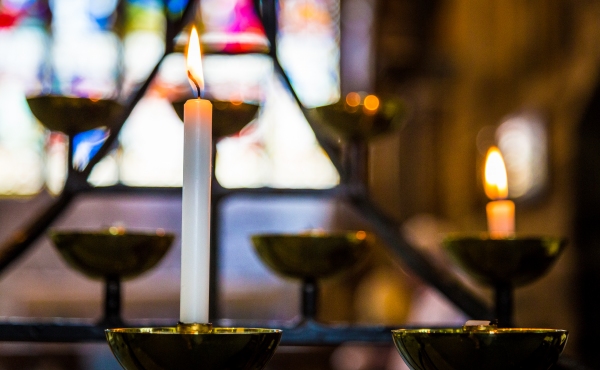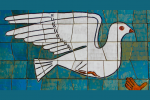October 5, 2021
When Does Human Life Begin? A Theological Reflection

Pregnancy can be miraculous. When through an act of love a woman and a man join with the Creator in bringing new life into the world, it’s a gift from God. Advances in the science of fertilization, which can extend this process to more people, reinforce the breathtaking wonder of it all.
The manner in which a fertilized egg develops into a living, breathing person draws together a thousand tiny miracles: rapidly dividing cells specializing into fingers and nerves and a beating heart and so much more. Science can document this amazing growth: the first grainy images my wife and I saw of our grandchildren were sonogram photos, taken on their mothers’ bellies. While it wasn’t obvious what we were seeing, the awesome significance was clear.
Sadly, in many cases pregnancy is not the blessing it’s been for our family. The nightmares of rape and incest, the despair arising from longstanding trauma and poverty, the pervasive shame so easily triggered by judgment, and other factors lead to pregnancies being terminated. Besides the social and political dimensions of this controversial subject, passionately-held religious beliefs are involved. Scientific observations are often repeated (“The fetal heartbeat can be detected as early as five to six weeks”) without recognizing that science is not prepared to answer the theological question, When does human life begin?
Instead, Christians should be thoughtfully and faithfully reflecting on Scripture, open to being guided to deeper understanding. Because the Old and New Testaments do not address pre-natal development, I searched for an illuminating passage and was drawn to Ezekiel, chapter 37, verses 1-14, which describes the prophet being placed by the Lord in a valley filled with dry, human bones. The Lord asked, “Mortal, can these bones live?” Awestruck by the experience, Ezekiel replied, “O Lord God, you know.” The Lord instructed Ezekiel to tell the bones that, by God’s will, they would live.
Ezekiel conveyed the Lord’s message, and sure enough, “there was a noise, a rattling, and the bones came together, bone to bone. I looked, and there were sinews on them, and flesh had come upon them, and skin had covered them, but there was no breath in them.” All the pieces had been assembled, but something important was missing.
Because the Bible was not written in English, it’s easy to miss the subtleties of the original language. Scholars tell us that “ruach,” the Hebrew word for “breath,” also means “spirit.” So the passage: “Thus says the Lord God to these bones: ‘I will cause breath to enter you, and you shall live,’” takes on a broader meaning. To speak of breath is to invoke spirit, and vice versa. Breath and spirit are inseparable, biblically speaking.
This resonates with experiences I’ve had as a pastor, sitting with people who were dying. Their breath often came raggedly, separated by gaps which made us wonder, “Was that it?” Then another labored breath came, and an agonizingly long gap, and another breath followed… until it didn’t. As the minutes went by in silence, we slowly recognized that a profound change had taken place. Life as we know it had ended, with the passing of the breath/spirit.
This process happens in reverse at birth. Consider the old-fashioned cliché of men pacing in the waiting room, helpless to relieve the agony of the birthing mother. Then comes a lusty squall from the newborn, releasing the anxiety. I’m told there’s a similar tension the delivery room until the baby takes its first breath, the cry triggering the mother’s milk and shifting her suffering toward maternal fulfillment. That first breath reveals the spirit’s presence in this new, independent person. “Prophesy to the breath, mortal,” the Lord told Ezekiel. “I prophesied as he commanded me, and the breath came into them, and they lived…”
Birth days really do mean something, theologically speaking. One of the wonders of pregnancy is that the mother’s breath/spirit sustains the developing fetus. The relevant question is not, How early could a newborn survive on its own? Medical science has made remarkable progress in dealing with “premature” births, but these are still perilous situations. The crucial point is that, until birth does take place, the mother and fetus are one body in breath and spirit, which according to Scripture are the cornerstones of human life.





